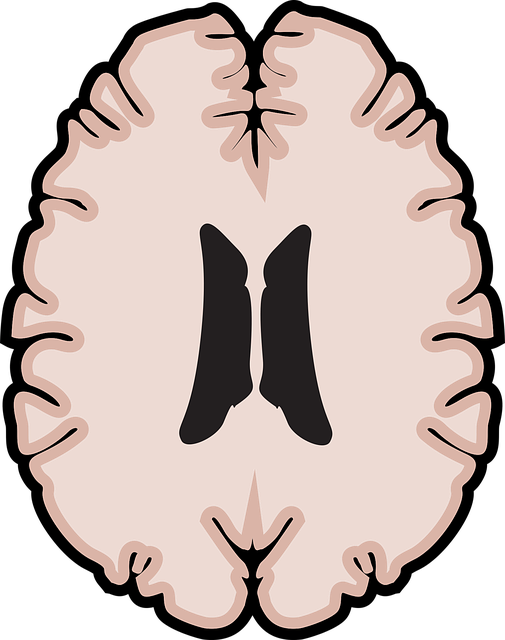Trauma left unaddressed often contributes to chronic illnesses, highlighting the need for integrated care that combines chronic illness therapy with trauma-informed practices. Mental Health Policy Analysis and Advocacy plays a crucial role in shaping healthcare systems to provide holistic support, including physical care and emotional assistance. Superior Chronic Illness Therapy (SCIT), which fuses Mind Over Matter principles with Crisis Intervention Guidance, addresses root causes of trauma, offering a holistic recovery path. Integrating SCIT into trauma support services enables comprehensive care, empowering individuals to overcome challenges and achieve well-being. Robust trauma-informed systems require integrating acute and superior chronic illness therapy, utilizing evidence-based practices like mindfulness meditation, and focusing on prevention and long-term support. Innovations such as online therapy platforms, community setting integrations, cultural sensitivity, and mental wellness podcasts are expanding access to effective trauma support, including specialized care for those needing SCIT.
Trauma support services are essential for individuals living with chronic illnesses, as it can significantly impact their overall well-being. This article explores the critical role of trauma-informed care in managing chronic conditions. We delve into understanding the connection between trauma and chronic illness, the benefits of superior chronic illness therapy within a trauma-focused framework, and the development of comprehensive systems to enhance access to these vital services. By examining these aspects, we aim to highlight strategies for improving patient outcomes.
- Understanding Trauma and Its Impact on Chronic Illness
- The Role of Superior Chronic Illness Therapy in Trauma Support
- Building a Comprehensive Trauma-Informed Care System
- Enhancing Access and Availability of Trauma Support Services
Understanding Trauma and Its Impact on Chronic Illness

Trauma has a profound impact on mental health and can often lead to chronic illnesses if left unaddressed. Understanding trauma is essential in providing effective support for those dealing with its aftermath. Many individuals suffering from chronic conditions, such as autoimmune diseases or long-term pain disorders, may have experienced traumatic events that triggered or exacerbated their physical symptoms. This intricate link between trauma and chronic illness highlights the need for integrated care approaches, combining superior chronic illness therapy with trauma-informed practices.
Mental Health Policy Analysis and Advocacy plays a crucial role in recognizing this connection and shaping healthcare systems to offer comprehensive support. By adopting Mind Over Matter principles, which emphasize the power of mental resilience, self-care practices can be incorporated into treatment plans. This holistic approach ensures that patients receive not just physical care but also the emotional and psychological support needed to navigate their chronic conditions effectively.
The Role of Superior Chronic Illness Therapy in Trauma Support

In the realm of trauma support services, Superior Chronic Illness Therapy (SCIT) emerges as a powerful tool, intertwining with Mind Over Matter principles to offer profound healing. SCIT goes beyond conventional therapy by addressing not just the symptoms but also the underlying causes of trauma, utilizing Crisis Intervention Guidance to create a safe and supportive environment. This therapeutic approach acknowledges that trauma’s impact can manifest in various physical and emotional ailments, often chronic in nature. By employing specialized techniques tailored to these complex cases, SCIT facilitates a holistic recovery process.
Integrating SCIT into Trauma Support Services ensures individuals receive comprehensive care. The method encourages clients to confront and process traumatic memories while fostering resilience and adaptive coping mechanisms. As individuals navigate their journeys towards healing, the integration of SCIT principles equips them with the tools necessary to manage and overcome challenges, ultimately enhancing their overall well-being.
Building a Comprehensive Trauma-Informed Care System

In developing a comprehensive trauma-informed care system, it’s essential to integrate various services that cater to individuals with both acute and superior chronic illness therapy needs. This involves creating environments where mental health support is readily accessible and tailored to the unique experiences of trauma survivors. A holistic approach should incorporate not just clinical interventions but also community engagement strategies, such as Public Awareness Campaigns Development, to foster an inclusive and supportive ecosystem.
By implementing Mental Health Policy Analysis and Advocacy, we can ensure that policies reflect best practices in trauma-informed care, promoting evidence-based treatments like Mindfulness Meditation. This collaborative effort among healthcare providers, policymakers, and communities is vital for building resilience and enhancing the overall well-being of individuals affected by traumatic events. Such a system must prioritize prevention, early intervention, and long-term support to address the complex needs of trauma survivors effectively.
Enhancing Access and Availability of Trauma Support Services

In an effort to better serve individuals affected by trauma, there’s a growing emphasis on enhancing access and availability of support services. This involves expanding reach through innovative approaches like online therapy platforms, ensuring accessibility for those with superior chronic illness therapy needs, and integrating services into diverse community settings. By utilizing technology, we can break down geographical barriers and make specialized care more readily available.
Cultural sensitivity in mental healthcare practice plays a pivotal role in this process. Incorporating coping skills development strategies tailored to different cultural backgrounds ensures that support is not only accessible but also culturally relevant. Additionally, the production of mental wellness podcast series can offer valuable resources and education, reaching a broader audience and fostering open conversations about trauma recovery. These efforts collectively contribute to a more inclusive and effective trauma support ecosystem.
Trauma support services play a pivotal role in addressing the complex needs of individuals living with chronic illnesses. By integrating trauma-informed care, we can significantly enhance the effectiveness of superior chronic illness therapy. Building comprehensive systems that prioritize access and availability ensures that those most vulnerable receive the necessary support. This holistic approach not only improves health outcomes but also fosters resilience, empowering individuals to navigate their journeys with greater confidence and hope.














